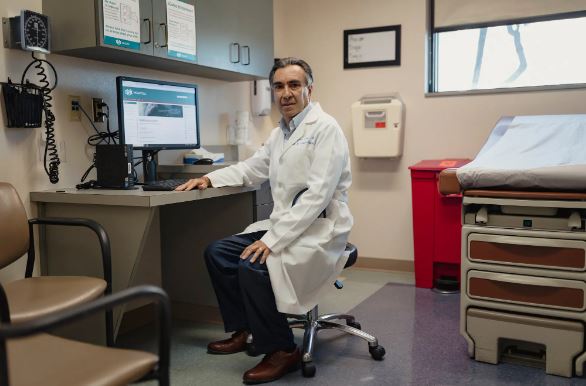Since Gilead Sciences introduced a groundbreaking hepatitis C treatment a decade ago, the global landscape in combating the blood-borne virus has undergone a transformative shift. With numerous new therapies emerging, millions worldwide have been cured, and 15 countries, including Egypt, Canada, and Australia, are on track to eliminate hepatitis C by the end of the decade, reports the Center for Disease Analysis Foundation.
However, despite the proliferation of effective drugs, the United States has not made significant strides toward eradicating the disease. Spread through blood, including intravenous drug use, hepatitis C induces liver inflammation, often remaining asymptomatic for years. Alarmingly, only a fraction of infected Americans are aware of their condition, leading to potentially fatal consequences.
While the treatment regimen, typically lasting eight to twelve weeks, is straightforward, marginalized populations such as the incarcerated, uninsured, or homeless encounter formidable barriers navigating the complex American healthcare system to access treatment.
Recent data from the Centers for Disease Control and Prevention (CDC) reveals that only 34 percent of diagnosed individuals in the U.S. since 2013 have been successfully cured, signaling a concerning lack of progress in combating the disease.
Dr. Francis Collins, former head of the National Institutes of Health, has been at the forefront of a White House initiative aimed at eliminating hepatitis C. Motivated by the memory of his brother-in-law, who succumbed to the virus before the advent of new cures, Dr. Collins is committed to driving change in this area.
The proposed initiative, included in President Biden’s budget proposal, seeks approximately $5 billion to establish a five-year subscription contract model. Under this plan, the federal government would pay a flat fee and receive drugs for enrolled patients, aiming to streamline access to treatment.
While some states have experimented with similar subscription contracts, their success has been limited. Louisiana, for instance, reported a surge in treatment among Medicaid beneficiaries and correctional facilities following the implementation of such a scheme in 2019. However, treatment rates dipped during the pandemic, and the state has struggled to meet its targets.
Dr. Collins acknowledges that a national drug-purchasing agreement alone will not suffice to reverse the tide. Hence, the proposal also allocates $4.3 billion for a comprehensive awareness campaign, clinician training, and treatment promotion across various healthcare settings.
Critics, including Carl Schmid from the H.I.V. and Hepatitis Policy Institute, caution against overemphasizing drug prices, highlighting the need for adequate funding for outreach, testing, and healthcare providers.
Despite federal initiatives, some states have independently spearheaded robust efforts. New Mexico, for example, has proactively connected hard-to-reach populations with treatment, showcasing successful outcomes without significant federal backing.
In rural areas like Ruidoso, New Mexico, healthcare providers face unique challenges in treating hepatitis C due to a shortage of specialists and limited patient resources. Nurse practitioner Christie Haase encountered such hurdles when a patient tested positive for the virus. With no local gastroenterologists available, Ms. Haase turned to telemedicine conferences facilitated by programs like ECHO to seek guidance from expert clinicians.
Developed by gastroenterologist Dr. Sanjeev Arora, ECHO aims to bridge the gap between primary care providers and specialists, particularly in underserved regions. Through collaboration and knowledge-sharing, programs like ECHO have enabled thousands of patients in New Mexico to access hepatitis C treatment, underscoring the importance of innovative solutions in disease management.
While the U.S. grapples with challenges in combating hepatitis C, initiatives like Dr. Collins’ proposed plan and grassroots efforts in states like New Mexico offer hope for progress in eliminating this debilitating disease.

